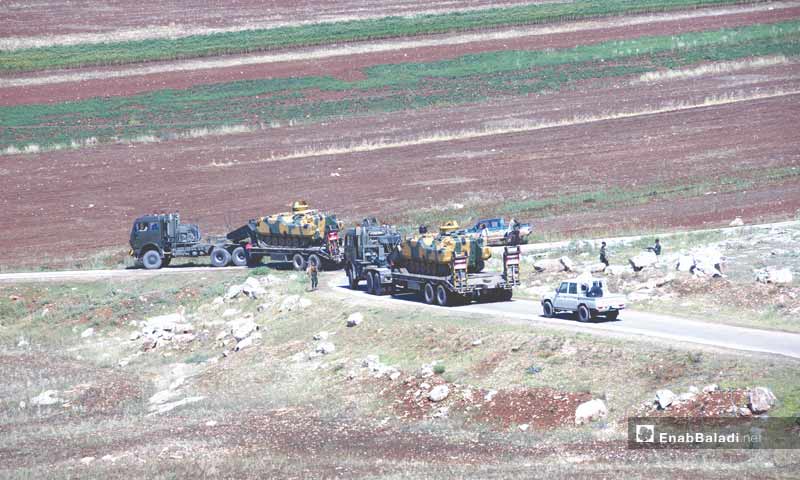A number of disputes have affected the Turkish-Russian agreement over Idlib Governorate after the completion of the implementation of its initial terms, which included the withdrawal of heavy weaponry from a demilitarised zone between government-held and opposition-held areas.
An opposition source well-informed regarding the implementation of the agreement’s terms said on Saturday 13 October that the differences had arisen over the exit of “Tahrir al-Sham” and the “Salvation Government” from the demilitarised zone in addition to the heavy weaponry.
The source told Enab Baladi that disputes were also linked to the formation of a new governing body, particularly in light of the presence of the “Salvation” and “Interim” administrations in Idlib.
The “National Front for Liberation” coalition has announced in recent days its completion of the withdrawal of heavy weapons from the demilitarised zone. The faction said that points where its fighters were stationed remained spread along the dividing line of the area in question.
A spokesman for the “National Front for Liberation”, Naji al-Mustafa, told Enab Baladi that the weapons withdrawal operation had been completed and fighters had withdrawn and redeployed to positions on the edge of the demilitarised zone.
Al-Mustafa also said that the Turkish military had reinforced its positions in Idlib over recent days, and had sent equipment and roadblocks to observation points set up within the agreed upon area.
As well as the “National Front for Liberation”, “Tahrir al-Sham” has also withdrawn heavy weaponry from its battlefront positions, particularly those in northern Latakia Governorate. The latter faction, however, has not publicly announced these withdrawals.
According to Enab Baladi’s source, the concessions made by Tahrir al-Sham are conditional, and it is possible that the group is making its military withdrawals contingent upon civilian infrastructure remaining under its administration.
The source added that discussions regarding the points of difference are currently ongoing, and that meetings may take place over the coming days between opposition factions and Turkey on the one side and Syria and Russia on the other in order to establish a road map for the governorate.
In a report on 12 October, the Turkish newspaper Hurriyet said that Turkey was expecting new confrontations over a “more difficult” mission in Idlib, which was convincing fighters belonging to “jihadist” factions to withdraw from the demilitarised zone.
The newspaper added that despite the relatively rapid implementation of the new agreement, Turkish authorities remained engaged in “strenuous” disputes in this regard.
Among the jihadist groups in question are Hurras al-Din and the Turkistan Islamic Party, which have taken Jisr al-Shughour city as their main base.
The source added that Jisr al-Shughour was considered outside the demilitarised zone. Opposition factions consider the zone as being between the city and the Turkish military observation post at Ishtabruk, a distance of 15 km.
The demilitarised zone has been specified as being 15 km broad within Idlib and 20 km in the Sahel al-Ghab area in western Hama Governorate.
Russia announced on 11 October that an agreement regarding Idlib city would be put into effect by Turkish authorities.
The Russian Foreign Minister, Sergei Lavrov, said that on 15 October the deadline set for the establishment of the demilitarised zone would arrive, and that a delay of a day or two would not affect the overall arrangement.



